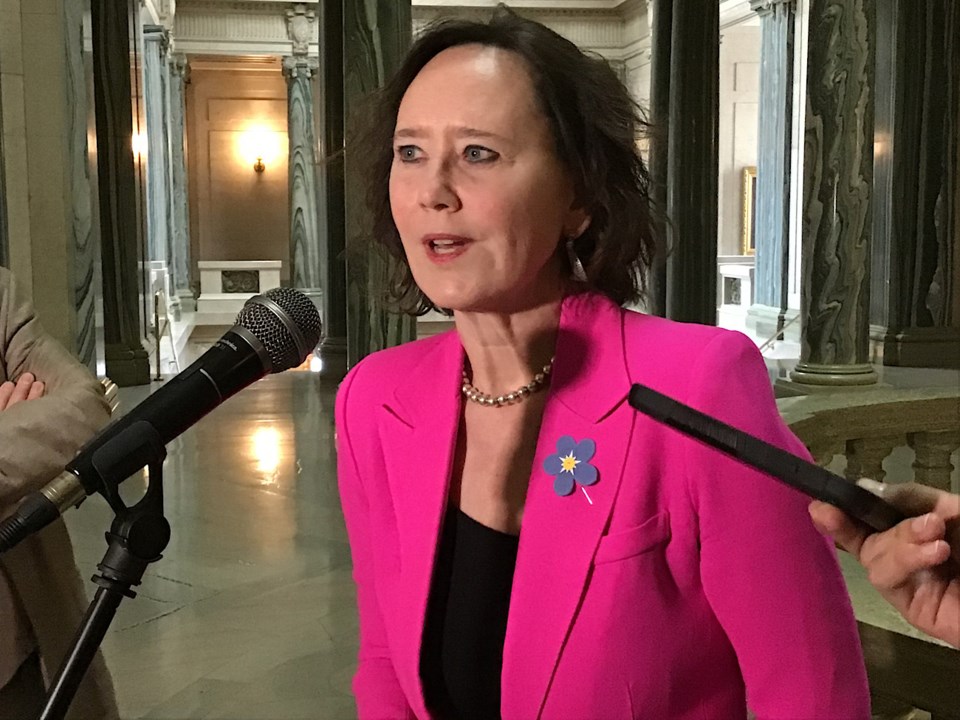REGINA - Provincial politicians reacted this week to word that Onion Lake Cree Nation had filed suit in King’s Bench court against the Saskatchewan government over the Saskatchewan First Act.
The legislation, designed to defend the province’s control over natural resources from federal intrusion, was passed in the Legislature this spring. Onion Lake are claiming the Act is infringing on their treaty rights.
Organizations including the Federation of Sovereign Indigenous Nations, and Metis Nation - Saskatchewan have also opposed the Act over concerns it infringes on treaty rights.
Speaking to reporters on Monday, Minister of Justice and Attorney General Bronwyn Eyre expressed confidence in the Sask. First legislation and its constitutionality.
She pointed out the Act asserts language already in the Constitution in section 92(a) as well as in the 1930 Natural Resources Transfer Agreement.
“We’re very confident in the constitutionality and legality of Saskatchewan First, and keep in mind that if Saskatchewan First infringes treaty rights, then the Constitution infringes treaty rights because it’s exactly the same language.”
Eyre again reiterated to reporters her previous statements that treaty rights are protected under the Act.
She said treaty rights “are enshrined in section 35 in the Constitution, they are enshrined in the Saskatchewan First Act, they are enshrined in all provincial legislation.”
“So what we’re saying is when we say that we are constitutionally confident and legally confident about the Saskatchewan First Act, it’s because it asserts the language that’s already in the Constitution. It amends our Constitution to reflect that and embed that. And again, Prime Minister Trudeau has acknowledged that provinces can do that, amend their own constitutions — Quebec did it. And it puts in place an economic tribunal. And the only role of the economic tribunal is to put a dollar figure on harmful federal policies, regulations and laws. And really, then, it would be up to us beyond that to determine what to do with that information, but that’s really the main new thing that comes out of the Saskatchewan First Act, namely the economic tribunal. The rest is asserting what’s already in the constitution of this country.”
She added “nowhere in the Saskatchewan First Act as nowhere in the Constitution are treaties in any way impacted. Those protections are enshrined.”
When asked about the lawsuit, Opposition Leader Carla Beck said it was a consequence of the lack of consultation the government did with First Nations groups prior to Bill 88 - The Saskatchewan First Act being introduced.
“This is the result of how the government spent their summer. Closed door meetings, coming out with Bill 88 with absolutely zero consultation with Indigenous communities, I’m not surprised that that’s where we’re at,” said Beck.
The Opposition leader reiterated that it was clear the provinces do have jurisdiction over natural resources as enshrined in the Constitution in 1982.
“Again I think what we see today is a direct consequence of the government failing to consult with Indigenous Communities. with First Nations leadership, and it’s unfortunate.”
She added the whole consequence of Sask. First Act “was to inflame relations with Indigenous communities in this province.”
“The government needs to walk this back, needs to admit they made mistakes. We hoped they would’ve invited leadership to come in to speak to Bill 88; we didn’t see that. This is where we are today.”





